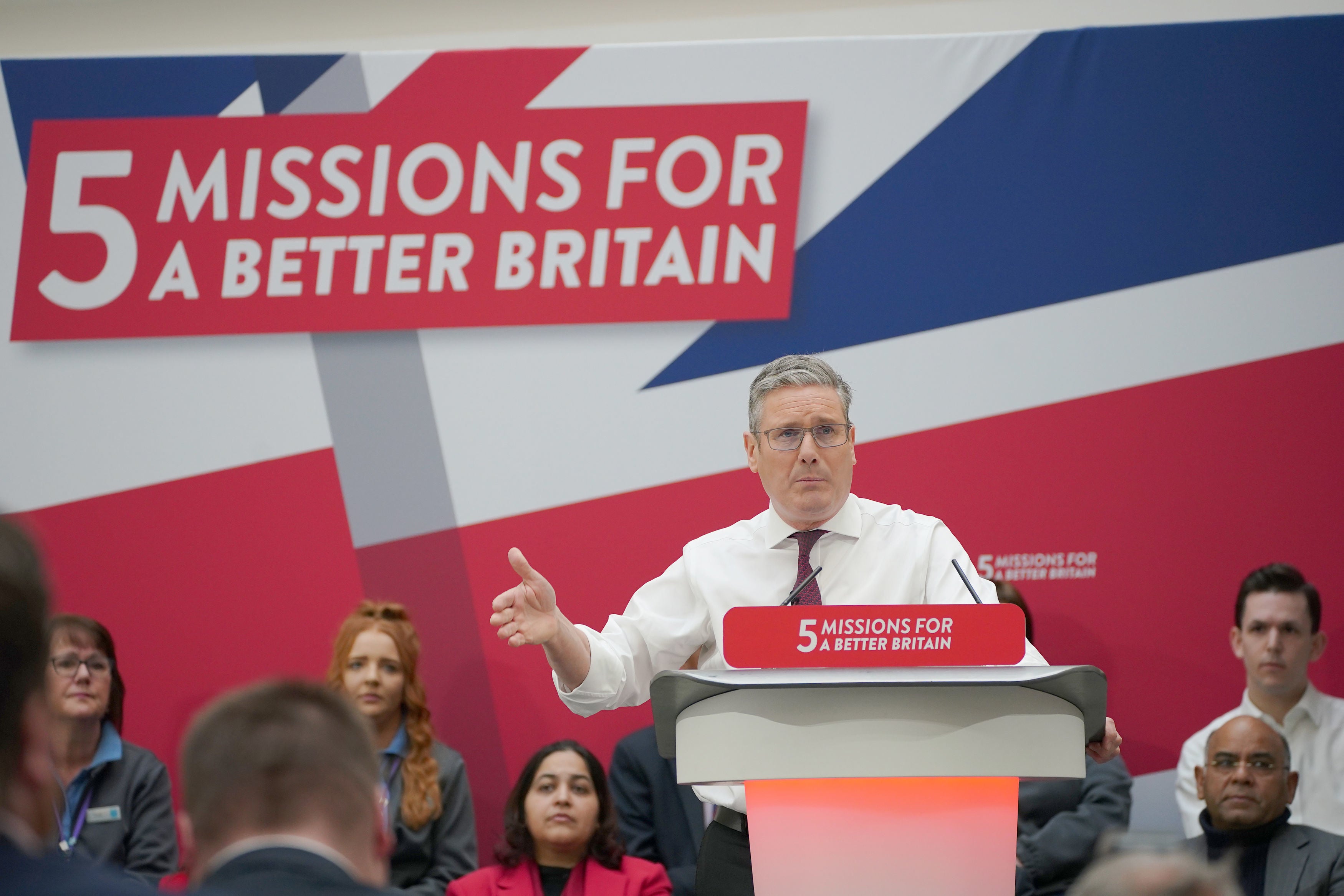What are Keir Starmer’s ‘five missions’ and can Labour deliver?
Sean O’Grady examines the Labour leader’s promises and whether his party can achieve them


Keir Starmer has pledged “to give Britain back hope and confidence” through a mission-led government headed by him. The Labour leader told an audience in Manchester that five subsidiary “missions” to secure success will form the “backbone of the Labour manifesto” for the next election and constitute the “pillars of the next Labour government”. Will his plan further boost Labour’s healthy poll lead, and can it work?
Secure the highest sustained growth in the G7 by the end of a Labour first term
This is the first and most significant of the “missions”, because, not putting things too subtly, there’s not much any government can do without money – and that needs economic growth. Like most political pledges, including Rishi Sunak’s rival five promises, there is some wriggle room behind the bold-sounding ambition; ‘by the end of Labour’s first term’ could refer to the final quarter of the last year of the administration or the cumulative growth record across four or five years.
Remaining outside the EU single market will also inevitably stymie growth prospects, by adding to business costs and excluding a ready supply of labour. A more serious obstacle is simply that a future Labour government has no control over the progress of other major economies, whose growth might easily outstrip that of the UK for entirely exogenous reasons.
As mature industrialised nations, they are unlikely to sprint far ahead of the UK, but Britain’s long-standing record of poor productivity, combined with an ageing population, suggests that Starmer’s growth mission will be genuinely challenging.
Make Britain a clean-energy superpower
Capital markets should be willing to lend to a government for such an obviously advantageous investment, especially at a time when the international agreements on climate change are forcing the pace of adoption of green technologies. Britain is also fortunate in having huge potential for offshore and (currently banned) onshore wind and solar farms, as well as wave technology.
As ever, nuclear power presents more formidable challenges. If this mission comes off, businesses and consumers will benefit from a plentiful supply of cheap, green electricity, which will raise living standards and growth. A national drive for better home insulation would also help Britain to become a net energy exporter, but the large stock of draughty Victorian and inter-war dwellings presents a challenge for retrofitting heating systems suitable for green electric-powered air pumps.
So the mission is realistic, but the grandiose claim to superpower status might be a stretch, not unlike Boris Johnson’s half-remembered plan to turn Britain into “the Saudi Arabia of wind”.
Build an NHS fit for the future
This is hardly something on which the Labour Party, which introduced the NHS, needs to campaign. The mission statement is vague to the point of being meaningless and falls short of defining what “fit for the future” means. Still, even at its lowest ebbs, Labour has usually managed to retain public confidence in its running of the NHS, and the public squarely blames Tory ministers for the current poor state of the service.
Everyone knows that the NHS (and social care, omitted from the mission) will need above-inflation funding for some years if it is to deal with an older, sicklier population. It will also need to fill 100,000-plus vacancies. So Labour should win on this, even though it may not deserve to.
Make Britain’s streets safe and tackle violence against women and girls
Rather a tall order, given that crime follows social and technological trends, not to mention the years of underinvestment in policing and the criminal justice system. As ever, the vague wording may prove handy for Starmer and his shadow home secretary Yvette Cooper; what exactly is a “safe street”?
Although aiming to improve the safety of women and girls is laudable and topical, voters would be right to be sceptical about this one – “tackle violence” is what every police force does every day. Increasing prosperity is often the best way to reduce all kinds of crime, and that’s far from guaranteed.
Break down barriers to opportunity for every child by reforming childcare and education
This would be greatly improved by some detail. Still, it chimes with a public feeling that some minority groups and poorer sections of the population are having their life chances blighted by the system. It’s an area of levelling up that has been more neglected by the Conservatives because their focus has been geographical and electoral rather than social.
There is a receptive audience for this mission but money will need to be spent on school buildings and on recruiting teachers in shortage subjects, to actually “break down barriers” and deliver “opportunity”.






Join our commenting forum
Join thought-provoking conversations, follow other Independent readers and see their replies
2Comments